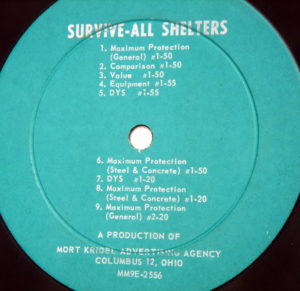One of our news directors forwarded a very interesting article by Graeme Newell, a “web marketing and revenue specialist” for 602 Communications. The article (“Hiding – The Latest Challenge in News Marketing”) touches on how social networks (My Space,Facebook, etc) will change (are changing?) how mass media advertising works (or does not work).
Mr. Newell explains how difficult it will be for companies to advertise and market to those who choose to communicate with only those on their “friends” list. That’s a gross oversimplification of one of the articles key points. Here’ are a few of my take-aways:
“Spam” will grow to include any message that does not come from a trusted source.
As consumers get more and more overwhelmed by the amount of communication in their lives, smart technology will help them prioritize and eliminate all the time wasters in their daily routine. These systems will filter TV ads, email, text messages, web interaction, phone messages and all other forms of personal communication. The trend will be that if I don’t know you, then I don’t want to talk to you.
Technology will seek to eliminate “interruption” advertising
There is an adage on the internet that if you obstruct the flow of information in any way, the community will not fight you, but simply go around you. You will quickly find yourself irrelevant. As technology gets better and better, tools will continue to arise that simply eliminate unwanted interruptions like mass advertising and promotion. Holding people hostage and forcing them to watch a non-targeted ad is not going to be tolerated in the future. The audience will demand that the ads they let in be customized to their individual tastes and desires.
Mass media advertising will move towards a system of “mass personalization.”
People want products in their lives that share their priorities, interests and values. As mass markets continue to splinter into ever more fragmented and specialized groups, consumers will expect advertisers to follow their lead. Technology will allow truly personalized ad communication with millions of people – all of it customized to the emotional and intellectual needs of the buyer.
Now that everyone (online) can –theoretically– reach everyone else, we realize we really only care about hearing from our friends (or select acquaintances). Social networks –augmented by technologies like text messaging– make it possible to do so.
If I ignore most of my email and rarely turn on a radio or TV (without the Tivo filter)… how will advertisers and marketers reach me?
I’m sorry I can’t link tot he full article. I can’t find it online but will keep searching.




